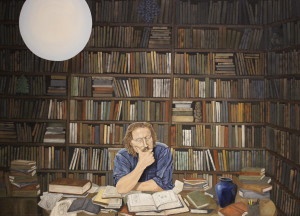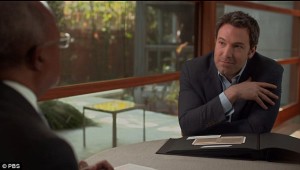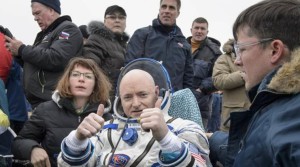In his widely read 1992 book The End of History and the Last Man, political scientist Francis Fukuyama argued that the end of the Cold War signaled the ushering in the “post-political.” In the true spirit of G.W.F. Hegel’s (1770-1831) philosophy of history, he concluded that all of history was destined to develop toward the establishment of a “universal, homogeneous state.” Such grandiose and triumphalist claims of Hegel’s—those more meant for a God than human—have become commonplace today through a presumption of God-like, total consciousness. Nations and groups are stunningly less resigned to admit they know nothing of the general destiny or direction that history will take. This kind of philosophical and religious grandstanding is not only unhelpful but it seems to be the preferred mode of self-hypnosis these days. Determining the overall historical status and grand narrative of human meaning and purpose is trying to play God or, if you don’t like that word, the unity of the whole. As European philosopher Peter Sloterdijk wrote, “Hegel went so far as to say that the truth is essentially a result—and thus, inevitably, only appears at the end of its drama. Where it reveals itself in a finished state, the human spirit celebrates the Sunday of life” (You Must Change Your Life, 2012, 7). If we assume that history is already made rather than in the making, we will be prone to interpret our experience from an all-or-nothing standpoint, which entails more than we can chew. If our age shows us nothing else it is that we are accustomed and confortable dealing with occasions on a piecemeal basis, without violating what Alfred North Whitehead called the chief philosophical error of overstatement.
As Leif Wenar argued in his New York Times editorial, “Is Humanity Getting Better?” (February 15, 2016) we increasingly “face the burdens of our success,” and “what future generations might marvel at most will be if we, in the midst of it, do not see it.” With that being said it is not a stretch then to claim the future looks bleak on several fronts. No, this isn’t some fear-mongering, apocalyptic prophecy or conspiracy theory about the end of days—there are enough of those going around for you to get your fix. But what I would like to suggest about history is that, given the dominant cultural structures and trends, our experience of the past, present, and future is dwindling down. In other words, our sense of time or history is being warped in ways Hegel could have never fathomed. Sloterdijk, in the 2005 Strasbourg inaugural lecture for the Emmanuel Levinas Chair entitled “What Happened in the Twentieth Century? En Route to A Critique of Extremist Reason,” argues that two principles define the sacred values of our age: the principle of Impatience and Gratis or immediate gratification. He argues there is a “dynamic presentism of contemporary culture with all its features of explosiveness, impatience, immediate gratification, and self-satisfied dissatisfaction.” We do not think in terms of ages or eras anymore, but in the heat of the moment. The accelerated mobility with which people and places move and interact with each other today speaks to how radical the situational character of our experience is. We have come to expect that we will have our needs and desires filled without much risk, unless the payoff is really worthwhile. That leads to the other feature we uniquely enjoy: abundance or excessive portions. With the easing of living conditions comes great squandering and waste. Whereas those before were encouraged to hoard out of need and survival (a bad harvest is irreversible), we are able to extract those Promethean energies of coal, fossil-energy vectors, natural gas, oil, and so on. From the baby boomers to millennial generations, the pathos of “being-that-way-and-no-other” has given way to the indulgence of “always-also-being-able-to-be-otherwise.” Remember this the next time your parents remind you about what they “never had” growing up that you do—they are upset about the loss of memory happening before their very eyes, while we are largely oblivious to this fact. This speaks to two aspects that are critical in order to understand how we lack a feeling for history aside from the impatience and immediate gratification principles: memory as repressed through generational and cultural time and intentionally repressed memory. There are times when, like a bad dream or date, we would much rather forget and move on from the previous trauma or condition of vulnerability and weakness. When we talk about history, which includes the stories and narratives we tell about ourselves, the elements that we exclude or forget are just as important as the details included and this an example of Whitehead’s negative and positive prehensions. Unintentional and intentional repression of recollection is just a much a part of history and cannot be ignored even if historians prefer to remain mum about it. Out of all the good things we want to remember, what has been repressed or lost? We are reminded of the recent controversy involving Ben Affleck’s attempts to bury his families historical ties to slave-owning and PBS’ Henry (Skip) Louis Gates, Jr. was more than willing to comply, until it became public spectacle.
So all institutions and cultures, just like individuals, comprise economies of remembering and forgetting and, these days, we tend to remember very little with any kind of reliable accuracy. We can afford to take history for granted and even talk as if we already “know” history, almost like it has been concluded. Persistent impatience and undeserving abundance leads to a post-historical orientation on history. History, in the post-historical sense, operates on the Immediacy principle of all history as the here-and-now, available for your personal exoneration. From this standpoint, all we need to do is eliminate lack. Before modernity there was heaven and hell, a Beyond transcended beyond history, but in our secular modern age there is no Beyond in the hearts and minds of people. Everything must be now and “the real” manifest itself through permanence of the abolition of all boundaries. As Sloterdijk wrote about this condition of post-historical individuals, “They can and must be aware that their lives are unfolding in an age in which there is no normality. Thrownness into the world of excess is paid for with the sense that the horizon is slipping.”
If we interpret our experience concretely, without romanticizing it or violently abstracting from it, we will encounter a hasty and overly irritable individual. The mass conformity of the age entails a kind of intolerance to just be content and endure—surely you want more for yourself, it will be said, “and who can resist?”. The stakes of the game have been raised to new standards. “Never give up impatience—this was the axiom of the desire committed to radicality.” How else would you explain the nonchalant and careless ways in which we appropriate history? You cannot cover the complexity of the “news” in less than two minutes of footage, or show the same two-hour rerun of analysis by talking heads or pundits. It is no secret that technology and other gadgetry are taking over the role of memory and has made us more likely to believe that memorization is overrated. What do we actually remember then? According to Sloterdijk, those threatening or terrifying incidents of history—plagues, assassinations, world wars, etc.—make up the paranoid, tragic news stories across the channels and stations. This has much to do with why the news is always focused on so much negativity, and craves the latest crisis or controversy. Upon his return to earth after having spent a record-setting 340 days in space (249 miles above earth), US astronaut Scott Kelly pleaded we must do better as a people because watching our news from above was a shameful and deplorable sight. When positive or constructive tales emerge, they are presented as almost an afterthought or as something that will be forgotten quickly. The tragedy of the human condition is this inevitable reality of both forgetting and having to remember and this tension besets every major historical transition. The world before electricity, the Internet, or cars and planes are prime examples. It is commonly said today that nothing will be remembered before the digital and virtual age, unless it is cyber-filtered for future access.
Is humanity getting better or worse? Aside from being an extremely broad and indefinitely answerable question, there is the issue of its relevance that must be considered. How important is such a concern for history in an age in which we engage the world through images, bits of data, or from instant to instant? Once our anamnesis of history is largely spent, then the historical is no longer valued and one will not have the motivation or time, in a respectful way, to learn about it. In this sense, then, can it be said that people who don’t know history are doomed to repeat it. This is evident in the recent old-style chauvinism and bigotry politics being witnessed in the 2016 presidential campaigns. And they know the voter doesn’t have time to get bogged down in details, so none of them need to provide specifics for their policy projections. Overwhelmingly, all voters and candidates understand how you can pick and choose, or manipulate through a play with possibilities, any interpretation of history or when it is wise to reject or accept our past selves and positions. This kind of historical opportunism is quite possibly why such questions about competing grand narratives of human history—does mankind thrive or backslide—seem to be more about fantasy, ideology, and agenda than anything else. We have witnessed, in our own times, the way in which science has joined with the imaginative force of sci-fi works and Hollywood directors and it appears that nothing is stopping the forms of history from undergoing the same cultural transitions and dynamics. That is why I argue that history is appropriated today hyperbolically and, therefore, it would be more realistic to say we live in a post-historical epoch. The warped nature of time and space not only involves the adaptation of our physical bodies, but also impacts our expectation structures of what we will anticipate and retrieve. Our bodily existence and consciousness are not mutually exclusive aspects of our experience. Therefore, asking questions about the overall evaluation of mankind’s progress or devolution may be irrelevant and non-useful, although they may tickle the fancy of our curiosities. A post-historical orientation on the world, with its reverence for the “Sunday of life,” continues to inspire us to do so.





